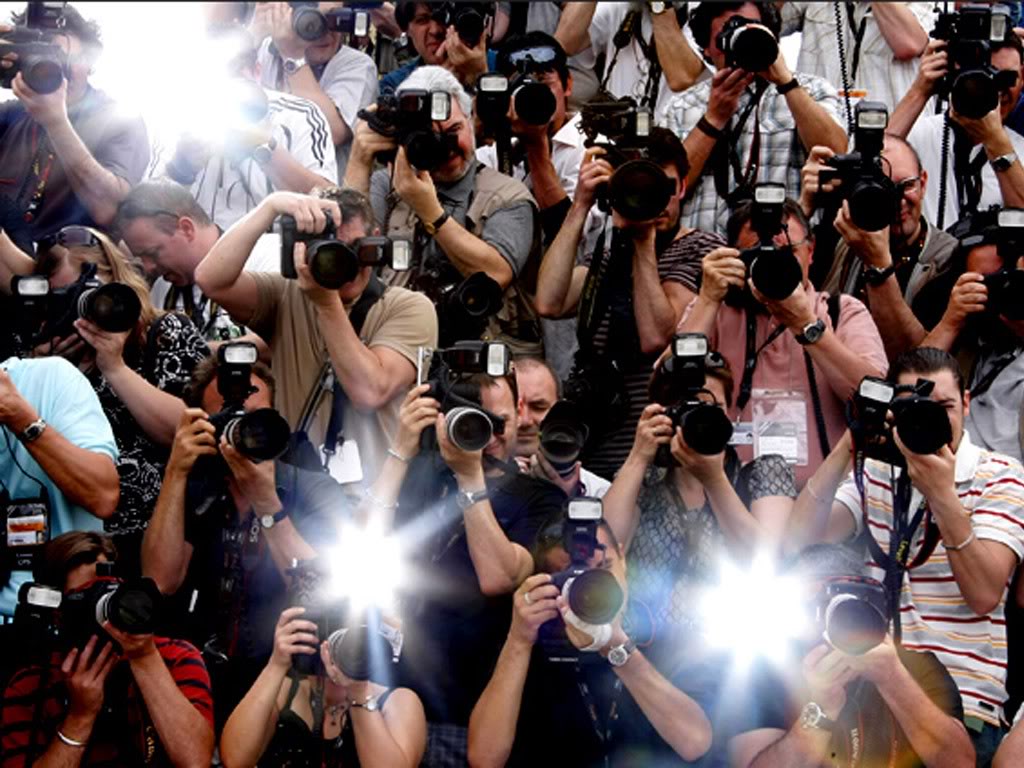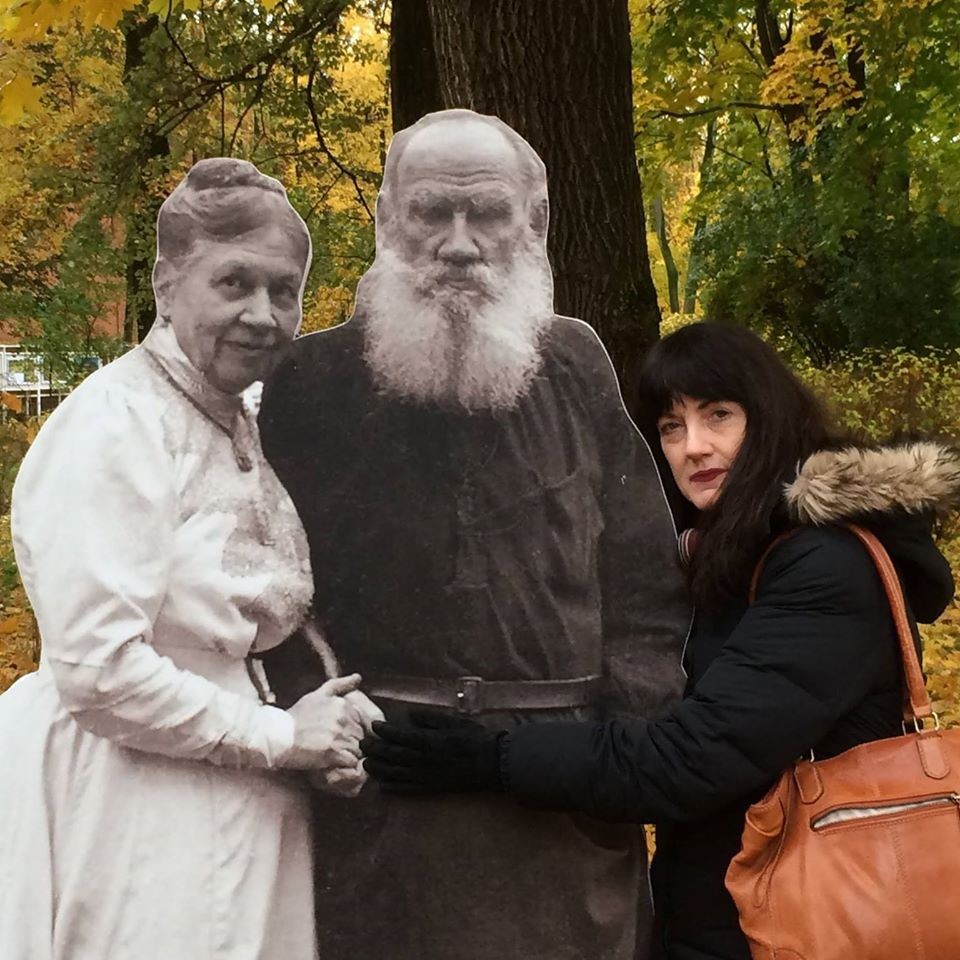‘What you get is no tomorrow’
David Bowie, Fame
After her best friend was killed in the Paris restaurant by ISIL that November in 2015 Veronica experienced déjà vu, yet felt bemused, when the journalists kept banging at her door, accosting her on the street, asking her the same questions over and over. Rose had been the only Australian in the massacre, and a finalist on Masterchef. A TV station got a hold of Rose’s mobile and the world ended up hearing her last conversation a thousand times.
ROSE (whispering, breathing heavily, crying): Veronica? I can’t get Mum, I can’t get the police, you’ve got to help, they’re…(sounds of screaming and firing).
VERONICA (groggy with sleep): Rose, Rose, what’s the matter, what time is it? Aren’t you in France? What’s going on?
ROSE: They’re killing everyone! (machine-gun shots, line goes dead).
When she’d finally discovered what had happened, watched the tv and social media coverage, been interviewed by the press and ASIO and the police and had attended the funeral with the Prime Minister standing beside her hailing Rose’s bravery, when she’d endured the wake and recounted her story yet again, she could at last sit down to mourn, to remember, to ponder. In her tiny apartment she peered at her glimpse of a mottled sea, and downed a bottle of shiraz. She thought of the interviews she’d given – the magazine offers, television appearances, radio talks – when she’d done nothing! She just happened to be the final number that Rose pushed.
Eventually there came a day when after listening to messages and perusing texts she deleted them all, noting, with a slight and shameful dismay, that they’d dropped in number. The twilight was grumbling, the clouds scowled, the beach was as empty as a graveyard – perfect for a lonesome walk. But at the bottom of her stairwell hovered what she recognised instantly to be a reporter. He brushed his thick fringe from his eyes and poked his business card at her eagerly.
‘Veronica, I’m with –’
‘For christ’s sake, leave me alone! I’ve got nothing else to say to you people,’ she said.
As she tried to pass he shoved his arm out, blocking her. ‘It’s not about Paris and Rose. It’s about Bali and Shona,’ he said quickly. She stared at him. ‘And London in 2005.’
‘What on earth are you on about?’
‘Can we go somewhere? I can explain – ’
‘No.’
But he wasn’t to be deterred. (She’d realise later that Bram B. had sniffed out a new angle, and that day could already see his name on the front page of the SMH, his interview on 60 Minutes. His blood was bubbling – the public loved this sort of thing – he’d even sketched out in his mind the table of contents for his book.)
‘Veronica, listen,’ he said, striding beside her. ‘I’m not like the rest. I just want to warn you before the other…vultures…get onto this. And they will, I promise. You know how the media craves these type of stories. Just talk to me, let me be your friend.’ He smiled what she knew to be a well-rehearsed I-don’t-care-about-the-job-I-care-about-people smile. Just as fake as the rest. ‘C’mon, let me buy you a coffee,’ he begged. His charm was as soggy as the wet sand.
‘I don’t know what you’re talking about, and I don’t know who the hell you are,’ she said, her arms folded tightly.
‘I’m a journalist with the Herald, but I do people stories.’ He softened his voice. ‘And I’m really sorry about Rose. But I also know that you had a workmate, Shona, who died in the Bali bombings. Weren’t you supposed to go to Bali with her? And I know you were in London in 2005 when the bombs went off, and should’ve been on that red double-decker bus that blew up – what was it, number 30?’ He paused. ‘I just wanted to get your thoughts on these…coincidences.’
Did he think she was a terrorist? She scrunched her face, horrified. ‘What fucking planet do you think I’m from?’ she yelled, then turned and ran.
Later she curled on her bed and watched the violet gloaming darken beyond her frosty window. After Shona’s death on Kuta Beach in 2002 she’d been downcast, then bewildered and overwhelmed by the horde of reporters’ questions and microphones. But as days passed the media attention continued to swell, and under the protection of her carapace of black clothes and downcast eyes a shimmer of excitement germinated. It hit her that she was experiencing her Warholian fifteen minutes; she realised that maybe, just maybe it could lead to something thrilling or notable…At the very least she’d have a mournful (but stirring) tale to tell at dinners now. She’d have attention. Everyone was talking about her.
(Around that time a hard, polished stone of guilt began to roll around her gut, a stone she was unable to expel, but which she kept firmly wrapped in a silk sheath of justification. It’s a dog-eat-dog world out there, she chanted to herself each morning; survival – success – is merciless.)
In time, however, people lost interest in her. The media attention dwindled. She continued though to retell the tale in bars with friends, and dragged it out as an example of her fascinating life at dull morning coffee-times in the office tea room.
Then, astonishingly, when she was living in London for a brief time in 2005, her life proved again to be unique. Special.
Yes, she should have been on the number 30 bus, but had taken the day off (work could be mind-numbingly mundane) and was lunching at the Tate Modern when suddenly all the mobiles in the restaurant trilled at once. Amazingly, no one had noticed the unusually total silence of phones until that moment. On answering, her then boyfriend screamed at her to get home, to not go near the Tube, that people were dying…But instead of fear she brimmed with intoxication. She and her lunch mate ran across the Millennium Bridge and policemen yelled at her to turn around, to run the other way; stumbling in their heels the two girls found a cab (unbelievable!) and she arrived home, exhilarated, very alive, her heart pounding.
Like a ceaseless shot of cocaine the euphoria refused to wane; but naturally she solemnised her tone when speaking of the tragedy to others. She certainly wasn’t that heartless.
The rock in her belly had enlarged, though, lurching like a hard-boiled egg. But the tale was too spicy, especially on her return to Sydney later that year, and she treated the rock as she would indigestion. ‘You could have died!’ her mother wailed for the hundredth time. Veronica sat smugly at the suburban lunch table, as if the fine balance of life and death were a burden she confronted daily. ‘Oh Mum,’ she’d said, rolling her eyes in saintly agreement.
That was over ten years ago. Ten years till the attack that killed Rose. Ten mundane, unremarkable years.
*
The morning after meeting Bram B. she perused her diary and the weeks ahead. She stared hard in the mirror. She considered what lay on her desk in the accounts office. And now the attention on her was waning again – the press had found other stories, they could only squeeze so much from hers (even friends stopped concealing their boredom). A week passed and the media’s interest withered.
And so the following Saturday she was in a café with Bram B. Fidgeting like a hormonal schoolboy, he whispered questions to Veronica and she performed perfectly (she hoped), expressing her horror, her grief concerning Paris, Bali and London, and her misery about Rose. (She didn’t dare mention that she wasn’t really that close to Shona.) She softly repeated Rose’s name and, gazing into the distance, halted, summoning tears. Yes, Rose had been a perfect friend, destined for great things – just see how well she was faring after her Masterchef second placing – yet her life had been cut short, like a rose. And yes, it did seem that disaster followed Veronica. (She considered telling Bram that she’d had a coffee once or twice at the Lindt café, but decided that that was pushing it.)
‘Maybe I’m cursed,’ she sighed, tilting her head melodramatically, her eyes glistening. ‘Maybe it’s my fault.’
Bram watched her silently, nodded sympathetically, snapped another pic with his phone.
After the article was published Veronica was assailed again by the media. They loved the coincidences, felt sorry for the girl who’d suffered so, played on the curse theme. This time she ignored the egg-rock: she had fame. She hired an agent who negotiated significant sums for magazine interviews, TV appearances and a book deal. She travelled on a speaker’s circuit and flew abroad to be filmed helping victims of terrorism. She was given her own weekly column in a women’s mag (that Bram helped write), and after her memoir became a bestseller she was paid a satisfying advance for a three-book deal: fiction? Non-fiction? Didn’t matter – there were always ghostwriters to do it. Then came the murmurs of a movie: it was rumoured that Margot Robbie might play her. She twirled before the mirror, grinning, and sighed; so this was what the Kardashians dealt with.
It was only when the reviews on the second book were published that Veronica began to worry. During an interview for a supermarket’s free magazine the pimply journo asked, without even offering her a cup of coffee or water, ‘What do make of the opinion that the book is a badly written attempt to bleed off the tragedy of others by making out that you are as much a victim by association as those who actually died?’ He’d smirked like the 14-year-old he probably was. She wanted to smash his face in. But he wasn’t alone in his snootiness: the critics declared it a dud, and the books sales reflected their cynicism.
Bram was promoted and ceased writing her column; the magazine was shocked by her new ‘style’ and axed it immediately; tv offers dwindled; the film idea vanished. She fought to keep her celebrity status afloat, appearing in late night promotions and RSLs around the country, fighting clanging poker machines in the fluorescence of the half-empty rooms while rigidly maintaining her VIP smile. But soon it was clear the allure had perished.
Her hunger for fame, however, remained rapacious. She knew she was made for it, for the lofty halls of the Valhalla of international stardom. Morning and night she thought of Bram’s innovative reportage, wracked her brain for different angles she could sell.
Then one morning on grabbing her phone from beside her pillow she read that a terrorist attack was underway in central Sydney. She leapt from her bed and switched on the tv. ‘Little information available now, but we’re told 30 dead so far…’ the reporter said.
Veronica’s mind cleared. She knew what she had to do. Climbing rapidly into her car she drove as far as police cordons would allow then, the motor still running, leapt out and yelled at an officer, ‘It’s okay, I’m Veronica X! I’m experienced with this – you need me!’
The next morning Veronica was in the news again, on page five, and the lower screen when she scrolled down her mobile: ‘Crazy woman attempts to enter siege scene.’ Only three sentences were devoted to her, but Veronica knew that with a bit of time, and the right journo, she could turn this into something really, really huge.

